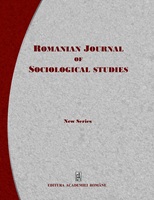LOW CAPACITY STATE, SOCIAL DISTRUST AND POPULISM: ROMANIA’S VULNERABILITIES DURING THE COVID-19 PANDEMIC
LOW CAPACITY STATE, SOCIAL DISTRUST AND POPULISM: ROMANIA’S VULNERABILITIES DURING THE COVID-19 PANDEMIC
Author(s): Lucian DumitrescuSubject(s): Political behavior, Politics and society, Social Theory, Health and medicine and law, Sociology of Politics
Published by: Editura Academiei Române
Keywords: state capacity; trust; populism; Romania; COVID-19;
Summary/Abstract: The article draws on Francis Fukuyama who argues that state capacity, trust, and political leadership are institutional variables that have allowed certain states to deal more effectively with the COVID-19 pandemic than other states. The article critically discusses Fukuyama’s tenet and brings to the fore the issue of “middle-quality institutional trap” which combines “tangible” and “intangible” elements. Then, the article examines Fukuyama’s perspective in the institutional context of Romania and argues that a low capacity state, low levels of horizontal and vertical trust, and populism instead of political leadership have been vulnerabilities during the COVID-19 pandemic.
Journal: Romanian Journal of Sociological Studies
- Issue Year: 2022
- Issue No: 1
- Page Range: 45-66
- Page Count: 22
- Language: English

